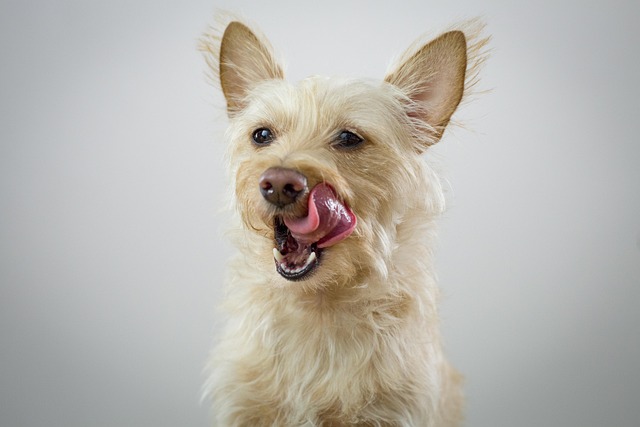
What is glaucoma in a dog?
You might notice your dog squinting more at mealtime or avoiding bright sunlight—these small changes could be early signs of a serious eye condition.
On the lawn of the park, do you often see scenes like this: your own dog is running happily, suddenly bowing its head and gnawing on the draft with relish. At that moment, you may be filled with doubts, aren't dogs carnivores? How did you develop an interest in green grass? The seemingly simple behavior of dogs eating grass hides many complex reasons behind it, and delving into these reasons is a crucial step for us to better care for our dogs.
From a biological instinct perspective, the ancestor of dogs, wolves, although carnivorous animals, occasionally ate some plants while living in the wild. This is not because they have a unique preference for plants, but rather a natural survival strategy. In the wild, wolves may prey on some herbivores whose stomachs contain undigested plants. While wolves feed on them, they also consume a certain amount of plants. Over time, this behavior became an instinct and was inherited by dogs. So, when dogs see green grass, their instinct may drive them to try gnawing, which is a behavior pattern engraved in their genes.
From the perspective of nutritional needs, dogs eating grass may be seeking certain nutrients that their bodies need. Although dog food usually contains various nutrients that dogs need, grass contains some special nutrients such as vitamins, minerals, and dietary fiber that may be lacking in dog food. Vitamins can help dogs maintain normal metabolism, minerals are crucial for the healthy development of bones and teeth, and dietary fiber can promote intestinal peristalsis and improve digestive function in dogs. When dogs feel the need for these nutrients in their bodies, they may supplement them by eating grass. Just as humans intentionally eat foods rich in specific nutrients when our diet is imbalanced, dogs also have their own unique ways to meet their body's nutritional needs.

Health status is also an important influencing factor for dogs to eat grass. Some dogs eat grass to relieve gastrointestinal discomfort. When dogs accumulate excessive hair, difficult to digest food residues, or are infected with parasites in their digestive system, they may feel discomfort in their stomach. The fibers in green grass can stimulate the intestines and stomach of dogs, causing vomiting reactions and helping them excrete harmful substances from their stomachs. Just like how we choose to induce vomiting to relieve symptoms when we feel uncomfortable in the stomach, dogs also use grazing as a way to self regulate. In addition, some dogs with gastrointestinal diseases such as gastritis and enteritis may also try to alleviate pain and discomfort by eating grass.
Behavioral habits and environmental factors cannot be ignored. If dogs often see other dogs eating grass during their puppy years, they may imitate this behavior and gradually form a habit. Moreover, when dogs lack sufficient toys and activity space in their living environment, they may pass the time and seek pleasure by eating grass. For example, some owners, due to busy work schedules, have little time to play with their dogs. When their dogs are bored, they may shift their attention to the green grass around them.
When we notice a dog eating grass, the first thing we need to do is to remain calm and not panic. If a dog only occasionally eats a little grass and does not show any other abnormal symptoms, then this may be normal behavior and we don't need to worry excessively. But if a dog frequently eats grass or experiences symptoms such as vomiting, diarrhea, and mental exhaustion after eating grass, it needs to be taken seriously. This may indicate that the dog's body is experiencing problems, and we should promptly take the dog to see a veterinarian for a comprehensive examination and diagnosis.
Dogs eating grass is a complex behavior with multiple reasons behind it. As dog owners, we should observe their behavior with care and understand their needs. Every dog is a precious companion in our lives, accompanying us with pure love and bringing us endless joy. We have a responsibility to care for them and create a healthy and happy living environment for them. By understanding the reasons why dogs eat grass, we can better take care of their physical and mental health, allowing them to thrive under our care. Let us spend every beautiful day with our dogs with more love and patience, making them the warmest and longest companions in our lives.

You might notice your dog squinting more at mealtime or avoiding bright sunlight—these small changes could be early signs of a serious eye condition.

Let’s set the scene: It’s a sweltering Phoenix afternoon—105°F outside—and you rushed your 2-year-old Lab mix, Cooper, on a quick walk to “get it over with.”

Let’s get real: You’re in your Miami apartment, watching your 3-year-old Corgi, Loki, struggle to climb the stairs to your second-floor unit.

Many dog owners brush off occasional scratching as just “dog behavior,” but persistent itching often signals something more—like a food allergy.

You might first notice your dog scratching more than usual—chewing at their paws until the fur looks thin, or rubbing their face against the couch nonstop.

Let’s be real: You’re standing in your Chicago apartment, watching your 3-year-old Beagle, Max, huff and puff just to climb onto the couch.